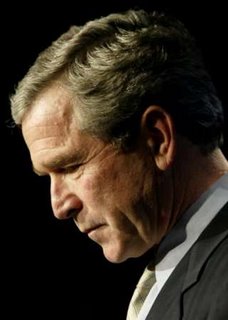Character Does Count

Every time the American people elect a new President, there is an implied agreement between the elected and the electors. Those who cast the votes that ultimately decide who will occupy the White House agree to confer upon the nation’s Chief Executive all the Constitutional privileges and powers granted by those who created the office in 1787, and by all those who have modified its standing via statutes and amendments in the two centuries since.
It is recognized by the voting public that included among these powers and responsibilities of the President are functions and directives that may be unknown to them. Most are willing to concede that some level of secrecy and initiative must be preserved for the one in the Oval Office in order to effectively fulfill his obligations to the nation he serves. This is especially so during times of national crisis. The public thus agrees to confer such authority upon the one who holds the office.
The flip side of this agreement is that the one who holds the office recognizes that such vast grants of power must not be abused. Such would be easy enough to do, given the resources at the command of the President. Despite their best efforts, there is no way for investigative reporters to catch everything the President does that might be perceived as a breach of this agreement. At some level, the man behind the desk must possess a sense of self-restraint, in order for the office to fulfill its role of both leadership and service for the American people. In a word, Americans, recognizing these basic facts, must never discount the value of trustworthiness in those for whom they vote – especially where the Presidency is concerned.
The lines being drawn over the controversy regarding President Bush’s use of warrantless wiretaps to monitor conversations between people in the United States and people outside the U.S. with ties to Al Qaeda do not follow traditional Republican/Democrat patterns. A reader of the day’s editorials will find Democrats defending the practice, and Republicans excoriating the President over it. So it is not the purpose of this post to weigh in on the rightness, or wrongness, of this particular practice – although it so happens that the writer supports it. Rather, the purpose of this post is to share an observation made in the light of the revelation of the practice.
The message that was oft-repeated in matters related to this in the early 1990s was that character in an officeholder didn’t really matter that much. One assumes this was done to justify the worthiness of a certain leader who even political allies noted didn’t have much character, or much of a moral compass – Does anyone remember a prominent senator of that particular President’s own party describing him as “an unusually good liar?.” The idea being that the personal morality of a political leader doesn’t matter. An amoral, secular government in the United States would work, so long as institutions are in place to keep its power in check.
However, the experience of the late 1990s, when that President’s misdeeds briefly appeared to have finally caught up with him, taught the nation that such institutions cannot check corrupted power, if those occupying those institutions have been tainted as well. From the very beginning, it has been noted that a United States government without a sense of morality cannot work. As the second President once stated, the Constitution was written for a moral and religious people, and is unsuited to the governance of any other kind of people. It relies on a compact of trust between the people and their leaders – a compact that can only be maintained by voluntary compliance on the part of both parties to it.
Few, if any, Americans expect their President to be the beacon of virtue that, say, their preachers or bishops may be. But they do know that they have to be able to trust him not to abuse the authority granted to him while he holds the most powerful office ever created by man. And whether that level of trust can be granted should, in large part, be determined by the kind of life the man has lived prior to his rise to power, and whatever private life he made lead once in power. This writer has long known that President Bush has information, resources, and powers available to him of which most Americans may never be fully cognizant. But the life lived by George Bush, even before he ever became President George Bush, leads the writer to believe that such powers are safe in his hands, until proven otherwise. And that hasn’t been proven yet.



0 Comments:
Post a Comment
<< Home